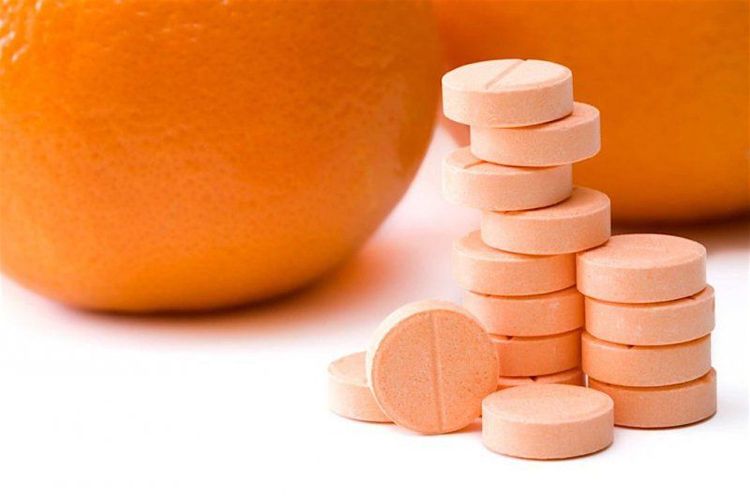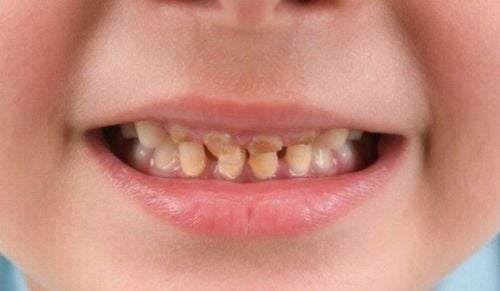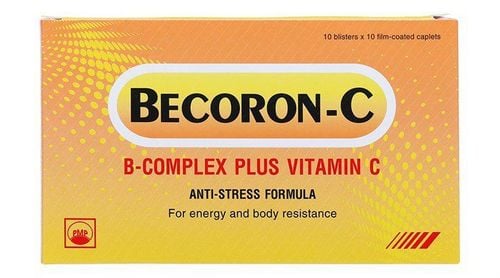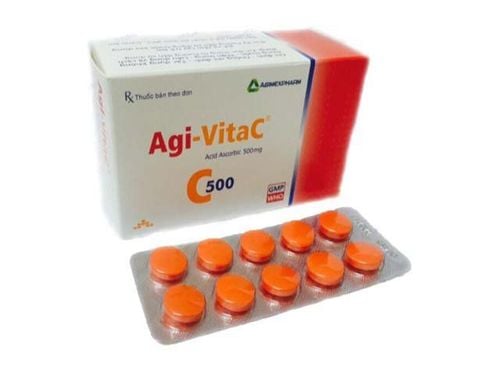This is an automatically translated article.
Vitamin C is one of those vitamins that is not produced naturally by the body, which perhaps explains why this vitamin is so sought after by parents, doctors and nutritionists. However, the supplementation of vitamin C for children needs to be appropriate to the needs of each age and stage to ensure optimal effectiveness.
1. Why is vitamin C supplementation necessary for children?
For children, vitamin C is even more important than for adults, it not only helps support the immune system but also aids in building healthy bones, blood cells and more.
By chemical designation, vitamin C, also known as ascorbic acid, is a water-soluble nutrient, which means that excess amounts of this vitamin do not stay in the body but are quickly eliminated. go out. This makes vitamin C supplementation for children necessary every day.
Furthermore, parents should also ensure that their child's diet contains vitamin C because the human body cannot produce the micronutrient endogenously on its own.
2. What are the benefits of vitamin C for children?
The daily vitamin C supplement for children will help them stay healthy and strong, increase their resistance. Here are some of the health benefits of taking vitamin C for young children:
Speeds up wound healing Prevents infections as vitamin C is an effective water-soluble antioxidant Maintains bone structure Good again thanks to the support of vitamin C and collagen Provides antioxidant ingredients, maintains skin integrity Supports protein metabolism Helps to better absorb iron through the intestinal tract. When foods rich in vitamin C are combined with other foods that contain iron and folate, they are better absorbed by children's bodies as iron is the most common nutrient deficiency in children.

Bổ sung vitamin c cho trẻ đúng cách giúp trẻ tăng đề kháng hiệu quả
3. What is the daily requirement of vitamin C for children?
Here are the recommendations for daily vitamin C supplementation for children by age:
From 1 to 3 years old: 15mg From 4 to 8 years old: 25mg From 9 to 13 years old: 45mg From 14 to 18 years old: 75mg However, the best way to ensure vitamin C supplementation for children is to eat fresh fruits and vegetables every day. Because, choosing all-natural food sources instead of foods and drinks fortified with vitamin C is the best way to provide this vitamin and other essential nutrients into the child's body in a healthy way. safe.
4. Symptoms of vitamin C deficiency in young children
When a child's body is deficient in vitamin C, he or she may experience some of the following health problems.
Slow wound healing Gingivitis Hyperkeratosis often colds and coughs or seasonal diseases Feeling tired Low immunity Dry hair, split ends Dry and flaky skin Enamel wear Bleeding gums Bleeding nose Prolonged vitamin C deficiency can lead to rickets, but it is more common in adults than in children.

Bổ sung vitamin C cho trẻ giúp hạn chế tình trạng mòn men răng
5. How to supplement vitamin C for children like?
Vitamin C is found in citrus fruits, which are also suitable for the vast majority of children's preferences. In addition, vitamin C is also found in broccoli, red peppers, berries, melons, potatoes, papaya, guava, tomatoes, and green leafy vegetables. age becomes when meals have learned to be as varied as adults. Some other good sources of vitamin C are cereals, bread, oats, pasta, rice, pasta, tofu, fish, lean meat, eggs, milk, cheese and yogurt. These can be ingredients rich in vitamin C to easily prepare attractive snacks for children when outdoors or camping. As such, vitamin C is available in a number of foods, so a deficiency of this vitamin is very rare. However, if children are not used to eating enough fruits and vegetables in their daily diet, the possibility of vitamin C deficiency and repeated infections is very likely. Furthermore, children born and raised in environments with high exposure to tobacco smoke may also be deficient in vitamin C.
On the contrary, if parents are concerned that their children are deficient and take vitamin c supplements on their own. For children, children can suffer from side effects of excess vitamin C. Therefore, it is still best to consult a doctor, a nutritionist before adding any vitamin to young children.
In summary, the vitamin C requirement of children is 25mg to 45mg per day depending on age. When supplementing with vitamin c for children at the right dose, it will help improve immunity and promote the development of children. In addition, vitamin C also helps wounds heal faster and helps the body absorb iron.
Please dial HOTLINE for more information or register for an appointment HERE. Download MyVinmec app to make appointments faster and to manage your bookings easily.













